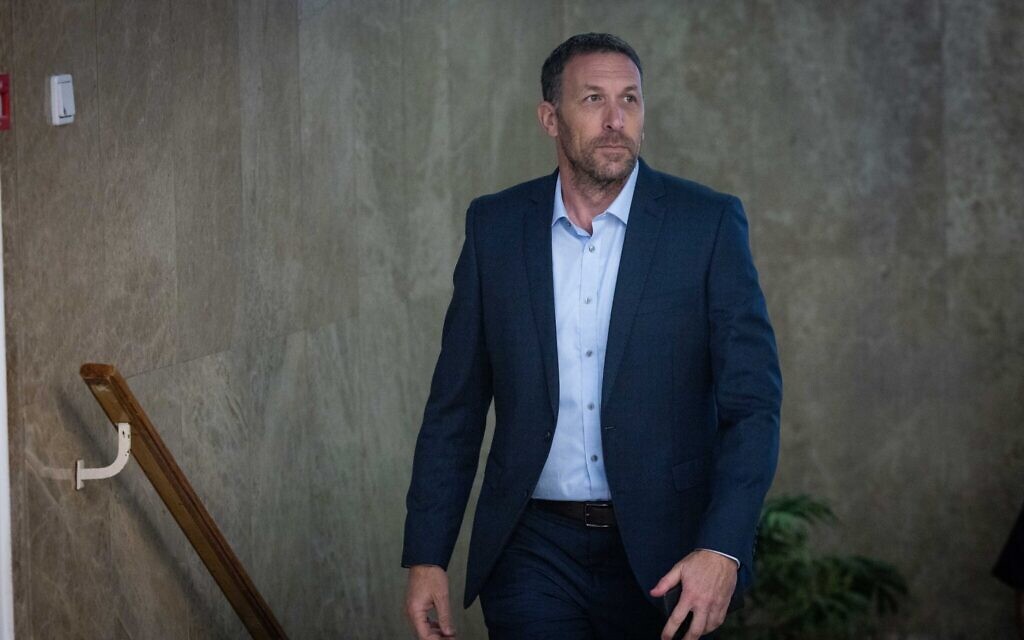Israel’s Religious Services Ministry was being run by an unelected civil servant as of Tuesday, after the government failed to garner the votes to reappoint former minister Matan Kahana earlier this year.
Interim Director-General Gal Shem-Tov, who only took office two weeks ago, now wields most of the powers of a minister in day-to-day operations, save for those specifically outlined in law as requiring ministerial approval. The government can designate those authorities to another minister for the time being.
This is not the first time that a ministry has entirely been led by a civil servant and not an elected official — a similar situation emerged last year in the Communications Ministry. The still fairly novel peculiarities of the arrangement will be navigated by the Religious Services Ministry’s legal adviser and the attorney general.
Kahana served as religious services minister until May, when he quit his post in a political maneuver aimed at shoring up the government’s control over the Knesset. The ministership was then automatically given to then-prime minister Naftali Bennett, while Kahana was appointed deputy minister, though he still effectively controlled the ministry’s day-to-day operations.
Similar arrangements, where a deputy minister serves as the de facto head of a ministry while the premier officially holds the title, was once used extensively by ultra-Orthodox lawmakers who on religious grounds refused to serve as ministers. This was due to rulings by rabbinic authorities who believed that accepting the title of minister would entail recognizing the legitimacy of a secular Jewish state.
Get The Times of Israel's Daily Edition by email and never miss our top stories
A 2015 High Court of Justice ruling curtailed that practice. Under a subsequent amendment to the country’s Basic Laws, the premier can only retain control of a ministry for three months.
Those three months came to an end for the Religious Services Ministry on Monday at 11:59 p.m., at which point no elected official held control over the office.
Since Kahana stepped down in May, the coalition had attempted to reinstate him to his position but failed to garner a majority to do so, as more and more members deserted and because of internal differences and grievances between the remaining parties.
Until a new minister is voted in by the current government — a highly unlikely prospect — or until a new government is formed, the ministry will be run by its director-general.
A spokesperson for Kahana said the former minister will not be involved in the activities of the ministry in even an unofficial capacity.
“In terms of this ministry — that’s it, it’s over,” Kahana’s office said.

Then-minister of religious affairs Matan Kahana arrives to a cabinet meeting at the Prime Minister’s Office in Jerusalem on May 1, 2022. (Yonatan Sindel/Flash90)
Shem-Tov, who had previously served as deputy director-general, took over the top spot in the ministry after the previous director-general, Shimon Matuk, stepped down on August 1.
Shem-Tov, 44, who joined the Religious Services Ministry following an extended career in the air force, will have to lead the office through a particularly thorny period ahead of elections this fall.
“The election period is a challenging one, but it is also one that allows us to prepare to complete the missions of the ministry for 2022 and to make work plans for 2023,” Shem-Tov told ministry employees when he entered office earlier this month.


